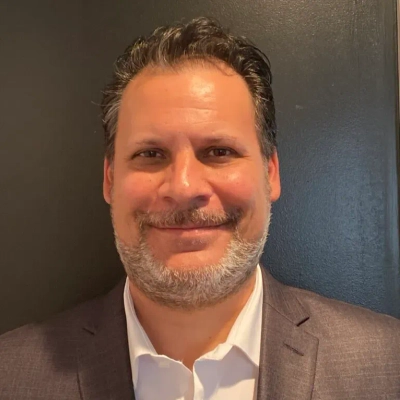25 Tax Strategies That Have Significantly Benefited Small Business Owners
Tax planning can dramatically impact a small business's bottom line, as demonstrated by 25 proven strategies from leading financial advisors and CPAs. These practical approaches range from optimizing business structures to maximizing property depreciation benefits, with each method offering significant tax savings opportunities. Tax experts recommend integrating these strategies into your business planning cycle rather than treating tax considerations as an afterthought.
Accelerate Planned Expenses for Tax Savings
One tax strategy that made a real difference in my small business was shifting high-value expenses into pre-tax dollars through a structured "expense timing" strategy. Most small business owners focus on deductions, but timing them is where the leverage really comes from.
I discovered this the year my revenue spiked faster than expected. My accountant didn't just ask for receipts—he asked about my plans. I told him I was hiring, upgrading software, and investing in training the team next quarter. He said six words that changed how I run finances: "Why wait until next quarter?" By accelerating those investments into the current tax year, we reduced taxable income while still funding long-term growth.
We prepaid annual software subscriptions at a discount, locked in contractor retainers, and purchased essential equipment before year-end. None of it was "tax tricks." It was money we were planning to spend anyway—just moved into a smarter window. That single shift saved us tens of thousands in tax liability in one year while giving us operational momentum heading into January.
The impact wasn't just tax savings. It changed how I think about financial planning. Tax strategy isn't something you do in April—it's a strategic rhythm you run all year. When you align investments with tax planning, you compound both growth and cash flow.
My advice to small business owners: don't ask your accountant how to save on taxes—ask them how to align tax planning with business planning. Bring them your growth roadmap, not just your income statement. Smart timing beats scrambling for last-minute deductions every time.
Deduct Home Office Space for Therapy
I realized our therapy spaces had tax benefits, so I started deducting facility costs, property taxes, and mortgage interest for the pet therapy business. A local small business accountant helped me figure this out, and our taxes dropped by about 18% each year. Running a pet therapy practice means juggling care quality with expenses, and these savings let us keep up our standards without skimping elsewhere.
Cooperative Profit Retention Yields Tax Advantages
Implementing a profit retention policy within a cooperative framework yielded stable tax advantages. The structure encouraged reinvestment over distribution, fostering resilience during unpredictable seasons. I learned its value from observing continental farming cooperatives emphasizing shared equity retention. It ensures capital circulates internally supporting expansion and modernization. The system integrates sustainability into financial governance with long-term perspective.
The approach encourages collaboration rather than competition between departments managing resources collectively. It consistently reinforces prudence and unity across leadership layers. Over time, the organization grows organically without dependency on external capital. The tax efficiency simply amplifies benefits already rooted in shared accountability. For enduring prosperity it's a quiet but powerful mechanism.
S-Corp Structure Maximizes Real Estate Depreciation
Which tax plan has been the most successful for your small business? What effects has this strategy had, and how did you find it?
Using depreciation across my short-term rental portfolio and incorporating important business operations under an S-Corporation is one of the most effective tax strategies I've implemented. This strategy enables me to distribute extra profits as dividends, which are subject to lower taxes, while still paying myself a respectable salary. Additionally, taxable income is offset by depreciation on real estate assets, providing the company with more cash flow flexibility.
Working with a tax advisor with expertise in real estate and hospitality, I learned about this. I used to think of taxes as something to "file" rather than "strategize" early in my career. The change was instantaneous once I realized how structure and depreciation could coexist. More freedom to reinvest in technology, enhance visitor experiences, and enter new markets without taking on excessive debt was made possible by the savings. I learned that tax strategy is about aligning your operations, growth plan, and financial health, not about avoiding taxes.

Active Income Status Optimizes Rental Deductions
Which tax plan has been the most successful for your small business? What effects has this strategy had, and how did you find it?
Organizing my business to benefit from short-term rental tax exemptions and real estate professional status has been one of the most effective tax strategies I've used. The fact that short-term rentals can be considered active income rather than passive income under certain circumstances is something that most investors fail to consider. This enables you to use property-related deductions, such as interest, maintenance expenses, and depreciation, to offset active income. It's a huge benefit that can drastically lower taxable income while maintaining rapid portfolio growth.
Working with my CPA, who specializes in real estate tax planning, I learned about this strategy. The most important insight was that tax optimization is about aligning your operations with the way the tax code defines real estate activity, not about finding loopholes. More liquidity, improved reinvestment cycles, and the capacity to grow more quickly without experiencing the financial burden of excessive taxes have all resulted from the significant impact. Treating tax planning as an integral component of the investment strategy rather than as an afterthought is a change in perspective.

Short-Term Rentals Bridge Property Flip Gaps
A tax strategy that's made a huge difference for me is structuring some of my property flips as short-term rentals before selling. I learned about it from a local real estate CPA who showed me that running the property as a short-term rental for a period allows for more write-offs on furnishings, utilities, and maintenance. It's kept more cash in the business and helped bridge that gap between flips, especially during slower seasons.
1031 Exchange Defers Taxes Between Properties
For my real estate business, leveraging the 1031 exchange has been a game-changer. It allows me to defer capital gains taxes when I sell an investment property, as long as I reinvest the proceeds into a "like-kind" property within a specific timeframe. This strategy allows me to keep more capital working for me, which means I can acquire more properties and grow my portfolio much faster than if I were paying taxes on each sale.

Self-Directed 401(k) Funds Property Investments
One of the most impactful tax moves for me has been establishing a self-directed Solo 401(k) for my business. I learned about it at a real estate investor meetup, and it's allowed me to make sizeable, tax-deductible contributions each year while also investing those funds directly into property deals. This approach not only reduces my current tax bill, but builds my retirement savings far more strategically than a typical IRA.

Cost Segregation Accelerates Property Depreciation Benefits
I discovered the power of cost segregation studies when I started ramping up my property renovations, and it's honestly transformed how I manage cash flow in my business. My CPA introduced me to this approach, which accelerates depreciation on specific components of a property like flooring, fixtures, and landscaping instead of depreciating the entire building over 27.5 years. For Fast Vegas Home Buyers, this means I can take larger deductions upfront on the properties I renovate, which frees up significant capital to invest in the next deal rather than waiting decades to recoup those tax benefits.

Section 179 Enables Immediate Equipment Deductions
My accountant clued me into the Section 179 deduction, which changed how I handle money for my real estate business. After our team grew, we could write off new workstations and client management software right away. This directly lowered our tax bill, so when our tech needed an update, we didn't have to hesitate. It was just a smart financial move.
Bonus Depreciation Boosts Renovation Cash Flow
The bonus depreciation deduction has been incredibly valuable for Michigan Houses For Cash, especially when I'm renovating properties before flipping them. I learned about this from my accountant during my first year in business when I was spending significant money on appliances, flooring, and HVAC systems for rehabs. Instead of depreciating these improvements over many years, I can write off 100% of certain renovation costs in the year I purchase them, which has freed up substantial cash flow that I immediately reinvest into acquiring more properties in Detroit's recovering neighborhoods.

S-Corp Status Reduces Self-Employment Tax Burden
One strategy that's made a big difference for Stillwater Properties is qualifying as an S-Corp once my profits reached a consistent level. I learned about it from a fellow investor who mentioned how it helped lower their self-employment taxes. By paying myself a reasonable salary and taking the rest as distributions, I've been able to save significantly each year--money I've reinvested into marketing and helping more homeowners.

Track All Holding Costs During Probate
Since we often buy houses in complex situations like probate, we discovered early on how critical it is to meticulously track every single holding cost--from utilities and insurance to unexpected repairs during the clearing process. These properties can sometimes take months to fully resolve, and those 'in-between' expenses can add up to thousands of dollars. Properly deducting these costs ensures our taxes reflect the true investment in each project, freeing up vital cash that allows us to move on and help the next family.

Home Office Deduction Saves Thousands Annually
Implementing a home office deduction has been one of the most beneficial strategies for Coastal NC Cash Offer. I discovered this approach when my CPA pointed out that since I run many aspects of our real estate investment business from my dedicated home workspace, I could legitimately deduct a portion of my housing expenses. As someone operating in multiple coastal NC communities, this has saved us thousands annually, allowing me to reinvest those funds into our marketing efforts to reach more homeowners needing our cash offer solution.

Deduct Loan Interest on Short-Term Purchases
For us, one overlooked but powerful strategy has been deducting interest and points paid on short-term loans used to purchase houses quickly. I stumbled on this tax benefit in a roundtable with other investors, and it made such a difference--especially when deals get stuck in probate or require extra holding time. By tracking and deducting these costs, we've been able to smooth out some of the volatility in our annual cash flow and keep our focus on serving families in tough spots rather than scrambling at tax time.

Separate Business Activities Optimize Renovation Deductions
I discovered the power of treating our mobile home renovations as separate business activities when my CPA explained how we could deduct materials and labor costs differently based on whether we're flipping or holding for rental. For instance, when we renovate a manufactured home for immediate resale, all renovation costs get added to our cost basis, reducing capital gains, but when we hold one as a rental, those same improvements can be depreciated over time. This dual approach has allowed us to strategically time our tax benefits--taking immediate deductions on rentals while building up cost basis on flips--ultimately keeping more capital in the business to complete our 150+ transactions.

Detailed Mileage Logs Fund More Deals
I discovered the power of keeping detailed mileage logs when my accountant told me I was leaving thousands on the table by not tracking my property visits. As someone who's constantly driving to evaluate houses, meet sellers, and check on renovations throughout St. Louis, I now use a simple app to log every business mile - whether I'm driving to a distressed property or meeting with contractors. Last year alone, this saved me over $4,000 in taxes, and that money went straight back into my next house purchase, essentially letting my car expenses fund more deals.

Local Marketing Creates Deductible Community Engagement
One tax strategy that has significantly benefited Dynamic Home Buyers is maximizing deductions for local marketing and community engagement initiatives. Being a Myrtle Beach native, I discovered early on that investing in local sponsorships, events, and even small gestures of goodwill within the community not only built incredible rapport but also provided legitimate business deductions. This approach has allowed us to organically grow our brand, support the community that supports us, and reduce our taxable income, all while strengthening our roots here.
Document Charitable Work for Deductible Impact
One tax strategy that really helped us is carefully documenting donations and charitable work--everything from sponsoring youth sports to providing support for local families facing hardship. I learned from my accountant that these contributions, when properly tracked, can be deducted, which not only amplifies our impact in Reno but also reduces our tax burden. It feels good knowing that the money we save goes right back into serving more homeowners and supporting our community, making our business a real force for positive change.

Professional Corporation Unlocks Small Business Rates
Setting up a professional corporation was the best move we made for Interactive Counselling. After trying different setups, this let us use small business tax rates and put more money back into our clients. Suddenly, we could afford to upgrade our HIPAA-compliant systems without worrying about cash flow. If you have a therapy practice, talk to an accountant. You might be surprised what it opens up for your business.
Separate LLCs Simplify Taxes Between Divisions
I split my manufacturing and retail sides into separate LLCs. Honestly, the paperwork was a pain at first and we didn't see immediate benefits. But after a couple of years, our tax bill got smaller and audits were way simpler since the books were separate. I'd suggest looking at your entity structure early, even if it's a hassle. It pays off.

Training Certifications Create Dual Tax Benefits
I used to think training was just a cost, until I talked to my accountant. Turns out, those OSHA safety certifications we paid for were deductible. We started getting more guys certified and our tax bill went down, plus our crew just got better at their jobs. If you're spending money on training, save every receipt. It helps your team and your bottom line at the same time.

LLC to S-Corp Election Reduces Tax
One of the smartest tax strategies to implement as a small business and often what I recommend to clients is electing for an LLC to be taxed as an S-corporation once the business reaches steady profitability. It's a simple change on paper, but the impact on cash flow and tax efficiency can be significant. Here's how it works in plain language. By default, an LLC's profits flow through to the owner's personal tax return, meaning you pay income tax and self-employment tax on every dollar of profit. Once your business is earning consistent income, generally between $50,000 to $100,000 or more annually, you can file a form with the IRS to elect S-corp taxation. You're still an LLC legally, but for tax purposes, you're treated as both the owner and an employee. That change allows you to split your income into two parts: a reasonable salary and owner distributions. The salary portion is taxed normally and runs through payroll, while the distribution portion is not subject to self-employment tax. There are added responsibilities, because now you'll need to run payroll and file a separate business tax return, but the savings usually outweigh the administrative costs once your profits are steady. This type of structure creates immediate breathing room and it frees up cash to reinvest in growth, build reserves or simply reduce financial stress. It's a strategic shift that turns your LLC into a more tax-efficient, scalable business model once the foundation is strong enough to support it.

R&D Credits Turn Compliance Into Strategy
One tax strategy that's made a real difference for Ezra Made is reinvesting profits into equipment and R&D credits rather than letting them sit idle. Early on, I used to view taxes as something to manage at year-end, a box to check after the fact. Then my accountant pointed out that many of our tooling upgrades and prototyping experiments qualified as research and development expenses, even though we weren't a "tech" company in the traditional sense. That realization changed everything.
By documenting design iterations and production tests, we were able to offset taxable income while funding innovation that directly improved efficiency. It felt like turning compliance into strategy. The benefit wasn't just financial, it created a habit of tracking progress and treating every improvement as an asset.
My advice: don't wait until tax season to think strategically. The smartest deductions are the ones that also move your business forward. In manufacturing and beyond, innovation can and should pay you back twice.
Max SEP IRA Contributions Cut Tax Bill
I'm Jenna Lofton, a Certified Financial Planner and founder of StockHitter.com. I left Wall Street to focus on financial advising and stock consulting full time, and I work with small business owners all the time who are basically volunteering to pay more taxes than they have to.
The strategy that's saved me the most money? Maxing out my SEP IRA contributions every year.
When I went out on my own and started StockHitter, I suddenly had to figure out my own retirement. No employer match. No automatic 401(k). Just me. My CPA casually mentioned a SEP IRA during tax planning, and I didn't really get how powerful it was until I actually did the math.
As a solo business owner, I can put up to 25% of my net income into a SEP, capped at around $66K. So if I make $200K after expenses and I contribute $50K, I'm only paying taxes on $150K. That's saving me somewhere between $15K and $18K in federal taxes alone, not even counting state.
I kick myself for not doing this sooner. First year I was self-employed, I barely contributed anything because I thought I needed the cash on hand. Huge mistake. I paid way more in taxes than I needed to.
Now? I max it out every year. It's one of the few things in life where you get to save for retirement and cut your tax bill at the same time. Not a lot of financial moves give you both.
If you run a small business and you're not doing this, you're leaving serious money on the table. Talk to your CPA and actually run the numbers. Don't just nod along like I did the first time.










